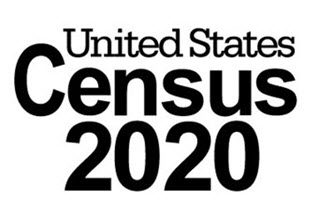Although it is only the summer 2018, the U.S. Census Bureau has already been testing extensive research from the past decade to inform a better census design. Our friends at the Providence Community Library (Providence, RI) wrote about the upcoming test in their community this past spring. The 2020 census has an unprecedented focus on online responses while still allowing for mail and telephone responses. It appears that gone are the days of the door-to-door census taker. The U.S. Census Bureau’s desire to move the census to an online format is certain to affect many populations that do not have reliable internet access including rural communities, low-income families, the elderly, and people with mobility issues. The Public Service Commission of Wisconsin and the Federal Communication Commission offer several maps to help visualize the distinct lack of high-speed, reliable internet access in our state. For many, the public library may be the only place in a community where residents without Internet access can go to respond to the census.
Local Impact
A September 2017 report from the U.S. Census Bureau found that in the 2015 fiscal year 132 programs utilized Census Bureau data to disburse more than $675 billion dollars back to local, state, and tribal governments. Some of the largest programs that use census data include Medicaid, Medicare, Supplemental Nutrition Assistance Program (SNAP), highway planning and construction, Pell grants, National School Lunch Program, special education, and Title I grants to public schools. When the federal government is deciding how to distribute those $675 billion dollars in aid, they are comparing your community and Wisconsin to the other communities and states in the nation. It is important that this enumeration of all free people living in the United States be taken accurately so that our local communities don’t lose out on aid that can have an immense impact in our communities.
Imagine your local school district receiving the same amount of funding year after year to serve the number of students that lived in your community a decade ago, but the number of students has actually increased – that leaves your school district trying to stretch its dollars even further to provide services to census responders and non-responders alike.
If you think that underrepresentation on the census means a community might lose out on a few federal dollars, think again! Private corporations use census data to plan investments: the greater the population in an area, the greater the potential for more income. This leads to increased private investment and private services being pumped into your local economy.
EVERYONE Counts
All people living in the United States are to be counted in the Census. Avoiding the census can cost local communities not only in lost aid dollars but in Congressional and state representation, too. It is important to remember that the Constitution requires everyone to be counted on the census.
The U.S. Census Bureau acknowledges, “Some demographic subgroups are underrepresented in Survey of Income and Program Participation (SIPP) because of undercoverage and nonresponse. They include young black males, metropolitan residents, renters, people who changed addresses during a panel (movers), and people who were divorced, separated, or widowed.”
Often underrepresented populations also include children, college students, and noncitizens.
Importance of Libraries
Libraries play an increasingly important role in ensuring all people living in Wisconsin are counted accurately on the 2020 census. Libraries must be prepared for new library visitors who look to respond to the census, and also take this opportunity to let their municipalities or counties know that by promoting the census in their community, and directing people without internet access to the library, they can greatly improve their chances for a thorough census. The library will help yield all the federal and state funding the residents are entitled to for services delivered in the community.
Public Library boards may also want to emphasize to their municipalities or counties that the online access to the census survey helps to maximize federal and state funding for municipal services. In the Rhode Island trial referenced above, communities stood to lose about $1100 in federal funds for each individual missed in the 2020 Census. Each person counted on the census in your community has a real dollar impact where you live. The Census Bureau provides a toolkit of resources, training materials, and graphics to help partner communities ensure that everyone gets counted.
Libraries taking a leadership role in your community to complete the decennial enumeration? Now that makes a lot of census.
Submitted by Michael Dennison, Public Library Development Team